Darum sollten Sie Probiotika einnehmen
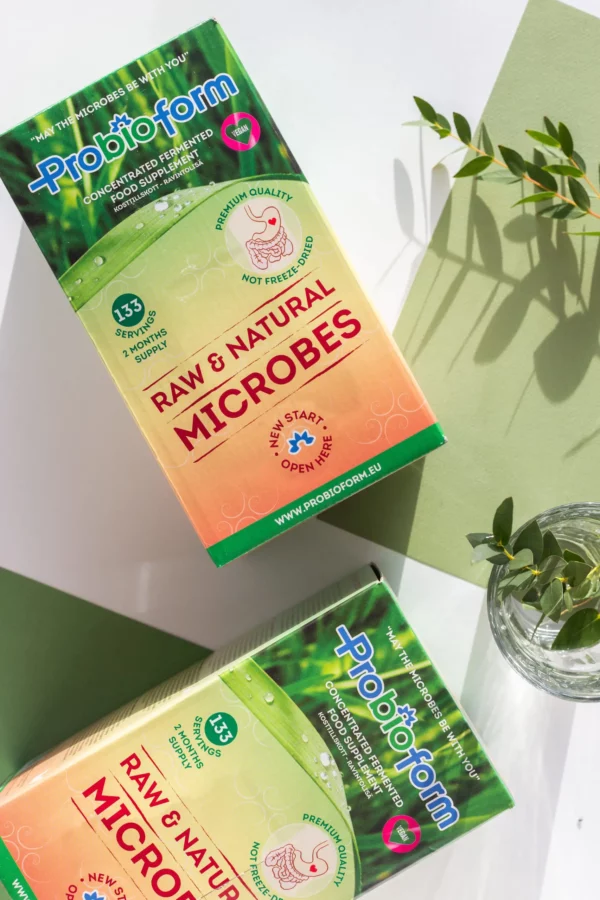
Why you should make probiotics part of your daily diet
People use probiotics for a variety of reasons, the most common being to treat some type of digestive issue, such as constipation and irritable bowel syndrome among others. Probiotics work to restore proper digestive functionality. They’re also known to give us more energy and promote regular bowel movements. They crowd out bad bacteria, giving our immune systems a boost.
Probiotics are having a moment right now. Just look around at grocery store shelves, pharmacies or even gyms. Though gaining in popularity, this modern-day trendiness had a slow start. These tiny creatures have been an essential part of human life for thousands of years, but it has only been in the past 150 years that we’ve known about them. Today, we are creating probiotics for the betterment of our overall health, but there is still confusion regarding probiotics when people come to know about live bacteria.
An ecosystem in our bodies
It is an amazing — yet faintly disturbing — fact that our gut is home to a parallel world. Not to some alien species, but to a tiny, bustling population of more than 100 trillion individual microbes.
These creatures are invisible to the naked eye, but this microscopic world of natural entities accounts for three percent of our entire body weight. This complex and still poorly understood ecosystem is vital for our health.
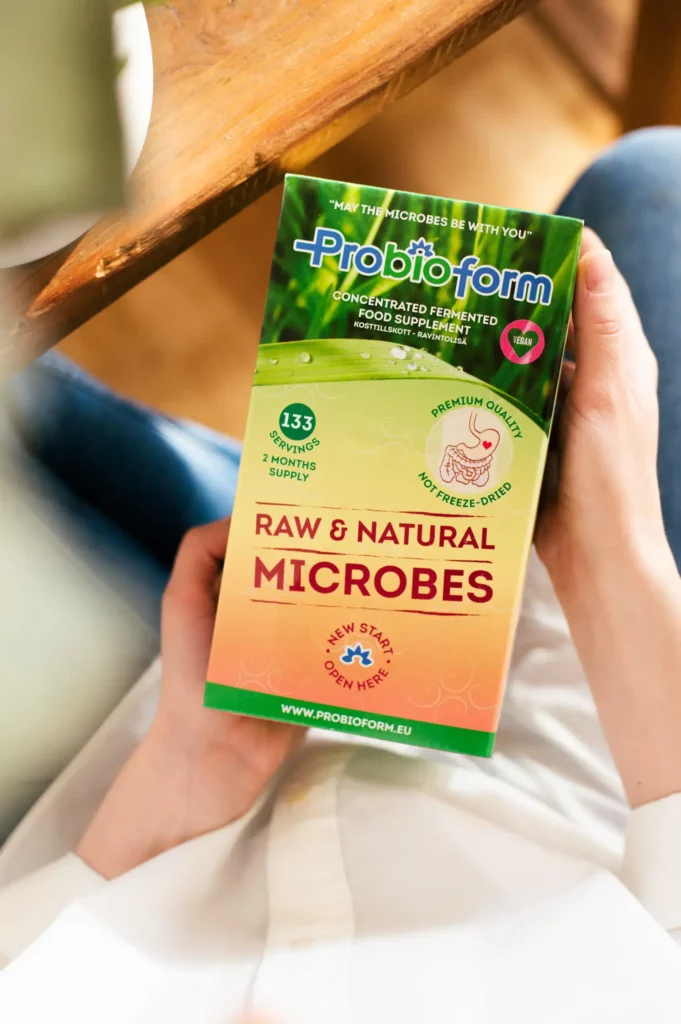
What are probiotics?
Welcome to the astonishing world of nature. Like a personal, internal United Nations, nearly 2,000 species of bacteria and other microscopic organisms can be found on and inside us. This alternate world is known as ‘’microbiota,’’ and its members are working in complete harmony to maintain balance and peace inside us.
Commonly, probiotics are defined as ‘’viable microorganisms that exhibit beneficial effects on the health of their host.” The benefits of these organisms are strain specific, but not genus-specific or species-specific. These living bacteria and yeast are called ‘’good’’ microorganisms, and they benefit our digestive system and treat other health conditions and diseases, including allergies, skin infections and mental health. Probiotics help us digest food, produce vitamins and destroy disease-causing microorganisms.
Examples of probiotics
Probiotics can be classified into three main categories, according to their sources:
Intestinal Probiotics:
These are the organisms found naturally in the human intestine, and they include the Bifidobacterium and Lactobacillus families of microorganisms, as well as yeast called Saccharomyces boulardii.
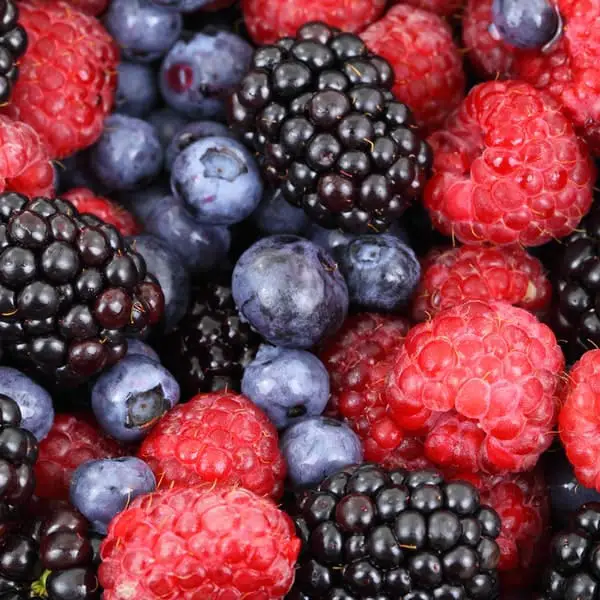
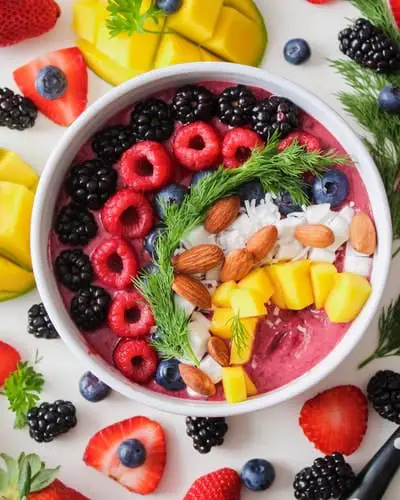
Food Probiotics:
Foods containing probiotics include yogurt and fermented pickles. These are probably the most important food products containing probiotics. There are also some soy drinks and juices that have probiotics, such as buttermilk and fermented/unfermented milk. Kimchi, kefir, sauerkraut, miso, tempeh and certain common soft cheeses also contains probiotics.
Supplements:
These are dietary probiotic supplements available in tablets, capsules, powder, and liquid forms, each containing its own specific types of bacteria. Probioform is the best probiotic available: its unique liquid form and production process maximize its benefits.
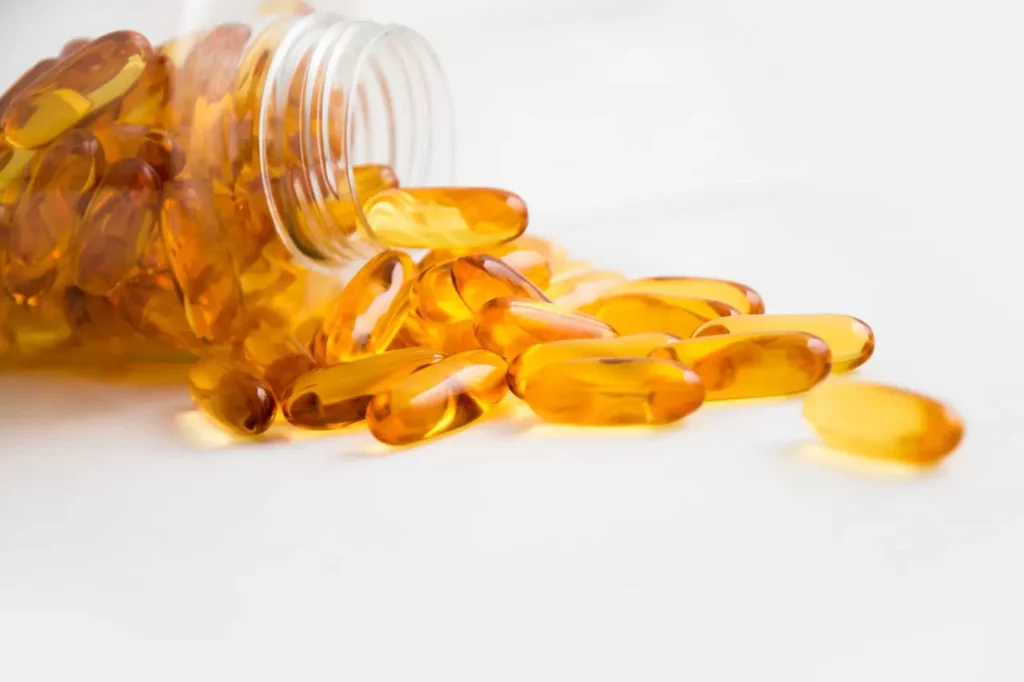
Claim your free fermentation guide.
To claim your free fermentation guide, simply enter your email address in the space provided. Learn how to make more than 20 healthy and delicious recipes like milk-free yogurt, sauerkraut, kimchi and many more!
What do probiotics do?
Probiotics are the essential population of our intestinal microorganism’s family. While there is no essential need for probiotic food and supplements in a healthy person’s body, probiotics assist the good bacteria already present inside our gut, helping them to work properly. These probiotics can help you to stay healthy in several ways:
A healthy human has a balance and high diversity of microbes within themselves. There are more than 1,000 different types of bacteria in the gut, but it only takes a small number of bacterial types to present in higher numbers than normal to cause issues and diseases like:

Prebiotics And Probiotics
Prebiotics and probiotics are supportive pillars when it comes to the maintenance and building of healthy colonies of bacteria and other microorganisms that aid digestion and support the gastrointestinal tract. These are components of food that promote friendly bacteria by providing them with food and a suitable environment in which they can flourish.
Prebiotics are a group of nutrients degraded by gut bacteria or fibers that are indigestible by the human body and are serve as food for probiotics. These include short-chain fatty acids such as acetate, propionate and butyrate. The fatty acids are also good for the improvement of metabolic health, as they are absorbed in the bloodstream.
Prebiotics and probiotics are a healthy solution for your gut — and the whole body. Probiotics with live, active cultures help to reintroduce or change bacteria in the intestine. Researchers also note that probiotics not only maintain the healthful bacteria in the intestine, but may also improve immune health.
Are probiotics effective? are they safe?
Prebiotics and probiotics are supportive pillars when it comes to the maintenance and building of healthy colonies of bacteria and other microorganisms that aid digestion and support the gastrointestinal tract. These are components of food that promote friendly bacteria by providing them with food and a suitable environment in which they can flourish.
Prebiotics are a group of nutrients degraded by gut bacteria or fibers that are indigestible by the human body and are serve as food for probiotics. These include short-chain fatty acids such as acetate, propionate and butyrate. The fatty acids are also good for the improvement of metabolic health, as they are absorbed in the bloodstream.
Prebiotics and probiotics are a healthy solution for your gut — and the whole body. Probiotics with live, active cultures help to reintroduce or change bacteria in the intestine. Researchers also note that probiotics not only maintain the healthful bacteria in the intestine, but may also improve immune health.
Prebiotics and Probiotics
Prebiotics and probiotics are supportive pillars when it comes to the maintenance and building of healthy colonies of bacteria and other microorganisms that aid digestion and support the gastrointestinal tract. These are components of food that promote friendly bacteria by providing them with food and a suitable environment in which they can flourish.
Prebiotics are a group of nutrients degraded by gut bacteria or fibers that are indigestible by the human body and are serve as food for probiotics. These include short-chain fatty acids such as acetate, propionate and butyrate. The fatty acids are also good for the improvement of metabolic health, as they are absorbed in the bloodstream.
Prebiotics and probiotics are a healthy solution for your gut — and the whole body. Probiotics with live, active cultures help to reintroduce or change bacteria in the intestine. Researchers also note that probiotics not only maintain the healthful bacteria in the intestine, but may also improve immune health.
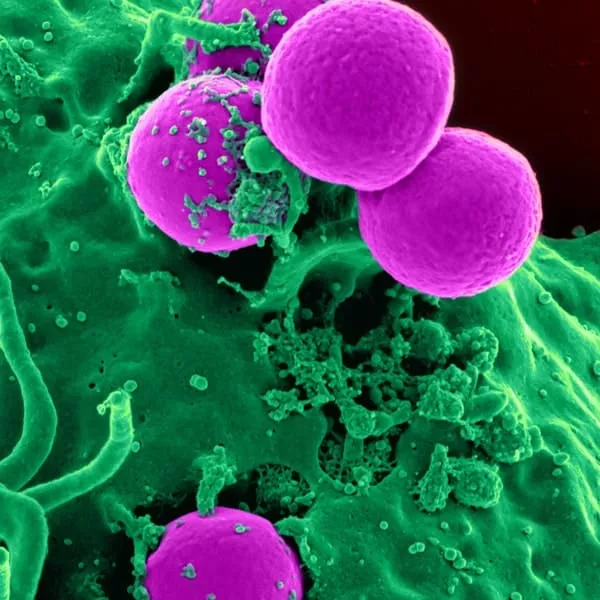

A new vision for probiotics
Of course, probiotics are best for digestive health and gut wellness. But is this where the benefits end? Can’t we make probiotics do more?
Absolutely.
Genetic engineering is working to enhance probiotics to perform specific tasks that may change their reputation completely. For example, in the near future, we can expect probiotics with defensive capabilities that can block the absorption of mercury and lead. Hopefully, probiotics will eventually augment the human body’s ability to respond against radiation and severe diseases.
How are probiotics beneficial?
80% of our immune cells are present in the gut. Probiotics are amazingly beneficial to boost our immune system that is why probiotics can do everything from boosting mood to improve skin conditions and reducing the aging process. Some well-known benefits of probiotics are:
Probiotics & digestive functioning
Basically, probiotics improve the healthy bacteria population by repopulating the gut to help with digestion. These can help us with colitis, abdominal pain, irritable bowel syndrome, diarrhea, constipation, flatulence and Crohn’s disease. Probiotics effectively work to increase cytokine cells and immunoglobulin cell production in the intestine.

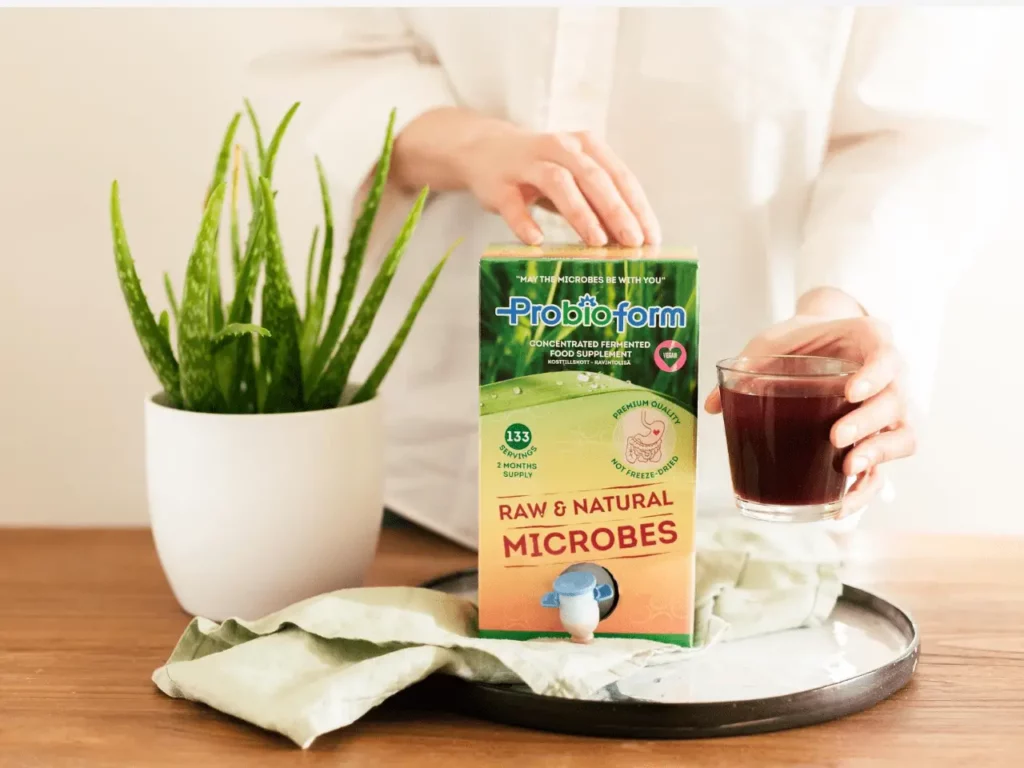
Probiotics & gut’s microbiome and the immune system
The digestive microbiome is the ecosystem of bacteria, and a balanced and healthy microbiome can normalize blood pressure and cholesterol levels; fight heart diseases; and improve kidney, urinary, and vaginal health. It is proven now that many chronic health problems and inflammatory diseases are the results of a damaged microbiome where good bacteria are overrun by bad bacteria, leaving them unable to reinforce the gut walls.
This situation leads to increased intestinal permeability, allowing toxins and bacteria leak into the bloodstream through the intestine. This problem triggers a wide immune response of inflammation that is called the ‘’natural healing cycle’’ of our body. Regular and adequate use of probiotics creates a shift in gut flora to reduce this subsequent inflammation and reducing digestive disorders.
Probiotics & skin issues
Our skin and our gut go hand in hand. Probiotics reduce skin inflammation, as well as other skin conditions. Probiotics protect the skin and reduce the ability of parasites and bad bacteria to provoke an immune reaction. As probiotics restore health to our gut, our skin problems also start vanishing.


Probiotics & wrinkle prevention
The good bacteria found in probiotics have the ability to eliminate toxins from the body that result in early aging. Probiotics flush these toxins from the body, helping to prevent early wrinkles.
Probiotics & brain functioning
According to researchers, some probiotics actually change the way our brain responds to its surroundings. Many studies show that bacteria in food can affect brain function. The gut and brain are interconnected, and this partnership of brain and gut is called the gut-brain axis. The biochemical signaling between the nervous system and digestive tract is termed as ‘’the enteric nervous system’’ and ‘’the central nervous system’’. Probiotics may help in boosting mood and cognitive functioning by lowering your stress and anxiety levels.
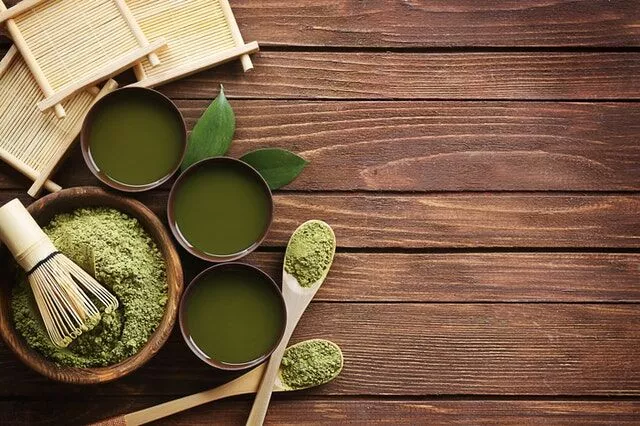

Probiotics & athletic performance
Probiotics also help to increase the absorption of nutrients to provide better nutrients to the muscle cells. This allows a better recovery time and better performance in athletes.

The ultra-stability of Probioform
The natural acidity of Probioform has a pH of 3.7, an ideal level for bacteria to easily grow and colonize. The pH of the stomach is 2.4, which is more acidic than Probioform. But the natural growth and resilient abilities of these bacteria make it possible for these microbes to survive in the digestive system. It means that Probioform assures the maximum possibility of live bacteria inside the gastrointestinal tract.
One solution for all
Probioform is a living liquid probiotic that is incredibly soft and gentle to the stomach. That is why Probioform is perfect for everyone in every age group. It is the best possible probiotic living solution that is suitable for the needs of an infant, athletes, pregnant women, healthy people and more.


Probioform and the co-growth method
Probioform has adopted the co-growth method instead of segregating each culture during the process. Segregating microbial cultures is an artificial way to grow strains individually, without any exposure to other strands.
In Probioform’s co-growth method, strains are allowed to interact with each other as they would in nature. This results in the production of more resilient strains that can work together in better ways to fight against bad bacteria.
Byproducts
Probioform is a complete bacterial ecosystem in its natural state. This is accomplished by keeping all the natural products created by bacteria intact, such as enzymes, antioxidants, and vitamins B and K. All these byproducts of bacteria found in Probioform allow our product to deliver faster, stronger and more effective results than any other probiotic.
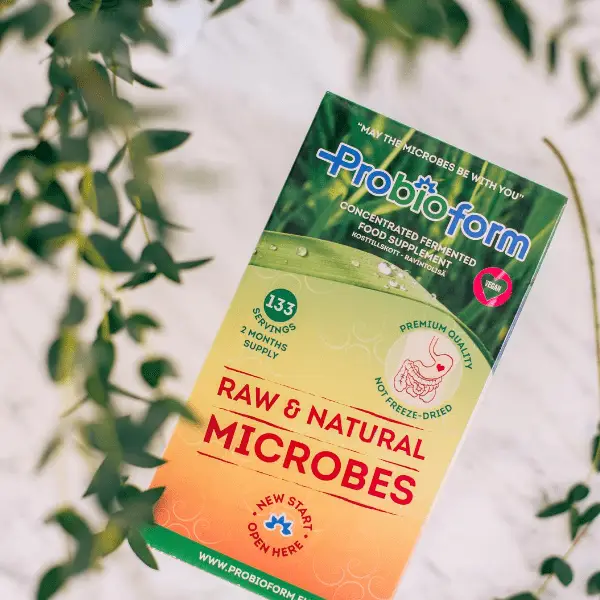
Our Gallery
Explore more about Probioform

Cascade Fermantation
A state-of-the-art probiotic requires a state-of-the-art production process, which is why Probioform uses cascade fermentation. This advanced process enables us to achieve the right pH level (3.7).

Why Do We Need It
Today’s food is produced in an unnatural way, relying on chemicals, pesticides, and artificial fertilizers. The result: little-to-no natural lactic acid bacteria is left on the food we eat. With a daily probiotic, you can replenish your microbiome with the good bacteria your diet is leaving behind.
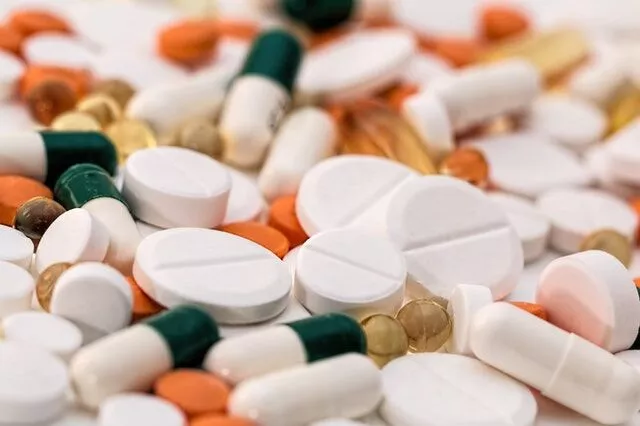
Powder or Liquid
Most probiotic manufacturers make their products in either powder or pill form. This isn’t done for any health-related reason — it is simply to save money in production and simplify transportation.
Probioform does things differently. Our living liquid probiotic supplement gives you so many more benefits at a cost that is negligible.






